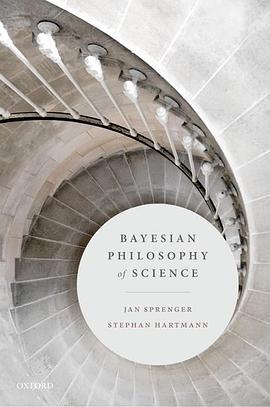Bayesian Philosophy of Science
豆瓣
Jan Sprenger / Stephan Hartmann
簡介
Shows the value of the Bayesian methodology for the addressing the core issues in the field
Provides clear, comprehensive, and accessible explanations
Discusses a wide range of questions, from philosophical foundations to practical applications in science
Combines mathematical modeling with conceptual analysis, simulations, case studies, and empirical results
How should we reason in science? Jan Sprenger and Stephan Hartmann offer a refreshing take on classical topics in philosophy of science, using a single key concept to explain and to elucidate manifold aspects of scientific reasoning. They present good arguments and good inferences as being characterized by their effect on our rational degrees of belief. Refuting the view that there is no place for subjective attitudes in 'objective science', Sprenger and Hartmann explain the value of convincing evidence in terms of a cycle of variations on the theme of representing rational degrees of belief by means of subjective probabilities (and changing them by Bayesian conditionalization). In doing so, they integrate Bayesian inference—the leading theory of rationality in social science—with the practice of 21st century science. Bayesian Philosophy of Science thereby shows how modeling such attitudes improves our understanding of causes, explanations, confirming evidence, and scientific models in general. It combines a scientifically minded and mathematically sophisticated approach with conceptual analysis and attention to methodological problems of modern science, especially in statistical inference, and is therefore a valuable resource for philosophers and scientific practitioners.
contents
Table of Contents
1: Theme: Bayesian Philosophy of Science
2: Variation 1: Confirmation and Induction
3: Variation 2: The No Alternatives Argument
4: Variation 3: Scientific Realism and the No Miracles Argument
5: Variation 4: Learning Conditional Evidence
6: Variation 5: The Problem of Old Evidence
7: Variation 6: Causal Strength
8: Variation 7: Explanatory Power
9: Variation 8: Intertheoretic Reduction
10: Variation 9: Hypothesis Testing and Corroboration
11: Variation 10: Simplicity and Model Selection
12: Variation 11: Scientific Objectivity
13: Variation 12: Models, Idealizations and Objective Chance
Conclusion: The Theme Revisited